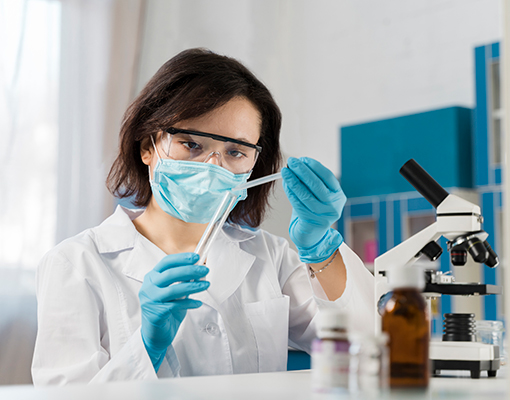A testosterone test measures the level of testosterone, a primary sex hormone, in the blood. Testosterone is produced mainly by the testes in men and in smaller amounts by the ovaries in women and adrenal glands in both sexes.
- **Men**: Testosterone is crucial for the development of male reproductive tissues, secondary sexual characteristics (e.g., muscle mass, deep voice), libido, and sperm production. Low levels can indicate hypogonadism, infertility, or other health issues.
- **Women**: Testosterone contributes to bone strength, muscle mass, and libido. Elevated levels can indicate conditions like polycystic ovary syndrome (PCOS) or adrenal disorders.
Measuring testosterone levels helps diagnose and manage conditions related to hormonal imbalances, reproductive health, and overall well-being.
Testosterone is a vital androgen hormone primarily produced in the testes in men, the ovaries in women, and in small amounts by the adrenal glands in both sexes. The total testosterone test measures the combined amount of free (unbound) testosterone and testosterone bound to proteins in the blood.
### Role in Men
In men, testosterone plays a crucial role in:
- **Development of Male Reproductive Tissues**: Including the testes and prostate.
- **Secondary Sexual Characteristics**: Such as increased muscle and bone mass, and the growth of body hair.
- **Sexual Function**: Maintaining libido and erectile function.
- **Sperm Production**: Essential for fertility.
Low testosterone levels in men can lead to symptoms like reduced libido, erectile dysfunction, fatigue, depression, and loss of muscle mass. Conditions such as hypogonadism, where the body doesn’t produce enough testosterone, can be diagnosed through this test.
### Role in Women
In women, testosterone contributes to:
- **Bone Strength**: Helping to maintain bone density.
- **Muscle Mass**: Aiding in the maintenance of muscle tissue.
- **Libido**: Supporting sexual desire and function.
Elevated testosterone levels in women can lead to conditions like polycystic ovary syndrome (PCOS), which is associated with irregular menstrual cycles, hirsutism (excessive hair growth), acne, and infertility. It can also indicate adrenal or ovarian tumors.
### Clinical Applications
**Diagnosis of Hormonal Disorders**:
- **In Men**: The test helps diagnose conditions like hypogonadism, pituitary gland disorders, and infertility.
- **In Women**: It aids in diagnosing PCOS, adrenal hyperplasia, and other conditions leading to androgen excess.
**Monitoring Hormone Therapy**: For individuals undergoing testosterone replacement therapy or treatments for conditions like PCOS, the test helps monitor the effectiveness and adjust dosages accordingly.
**Evaluating Puberty**: In boys and girls, abnormal testosterone levels can indicate issues with puberty onset and development, such as delayed or precocious (early) puberty.
### Procedure
The total testosterone test is a simple blood test:
1. **Preparation**: Typically, no special preparation is needed, but it’s important to inform the healthcare provider about any medications being taken, as some can affect testosterone levels.
2. **Blood Sample Collection**: A healthcare professional draws a blood sample from a vein, usually in the arm.
3. **Post-Test Care**: There are no specific post-test requirements, and patients can resume normal activities immediately.
### Interpretation of Results
**Normal Ranges**:
- **Men**: Typically, 300-1,000 ng/dL.
- **Women**: Typically, 15-70 ng/dL.
**High Levels**: Elevated testosterone levels can indicate conditions such as testicular or adrenal tumors in men, PCOS, or adrenal hyperplasia in women.
**Low Levels**: Low testosterone levels can suggest hypogonadism, pituitary gland dysfunction, or other endocrine disorders.
### Clinical Significance
The total testosterone test is a critical diagnostic tool in assessing hormonal health, guiding treatment for hormonal imbalances, and ensuring proper reproductive and overall health in both men and women. It provides valuable insights into conditions affecting testosterone levels and helps tailor appropriate medical interventions.










